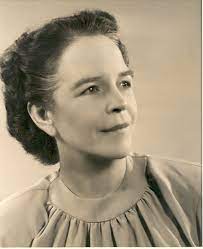Lynd, Helen

Bio: (1896-1982) American sociologist. Helen Lynd got her Ph.D. degree in history and philosophy from the University of Columbia, and later taught at Vassar College and Sarah Lawrence College. She is best known for two studies she did with her husband Robert Lynd - Middletown (1929) and Middletown in Transition (1937). In both studies, the subject of the empirical study was a small town (Muncie) in the state of Indiana, in the USA. The first study, commissioned by the Institute for Social and Religious Research, was supposed to deal with the churches in that city, but Helen and Robert Lynd expanded the scope of the study to study the entire society in that city.
The methodological approach they used in conducting the empirical part of the research was influenced by the British school of structural-functionalist anthropology. In the first study, they studied six different activities of people: patterns of household organization, the way children are raised, the jobs people did, participation in religious activities, participation in other community activities, and the way people spent their free time. They concluded that the jobs that people did, that is, whether they belonged to the business or the working class, decisively influenced all other types of activities, and even belonging to different Protestant denominations. The second study was conducted during the period of the Great Depression when there was a sudden impoverishment of the working class, but there was no organized class activity of workers.
Helen Lind later published books on different topics: criticism of the theories of Parsons and Sigmund Freud; on the relationship between students and professors in colleges; and historical research on the social foundations of freedom in eighteenth-century England.
Fields of research
Church City Classes Community Education Everyday Life Family Freedom Poverty Protestantism Religion Work Working ClassMain works
Middletown (1929);
Middletown in Transition (1937);
England in the Eighteen Eighties: Toward a Social Basis for Freedom (1944);
Fieldwork in Colledge Education (1945);
On Shame and the Search for Identity (1958).

